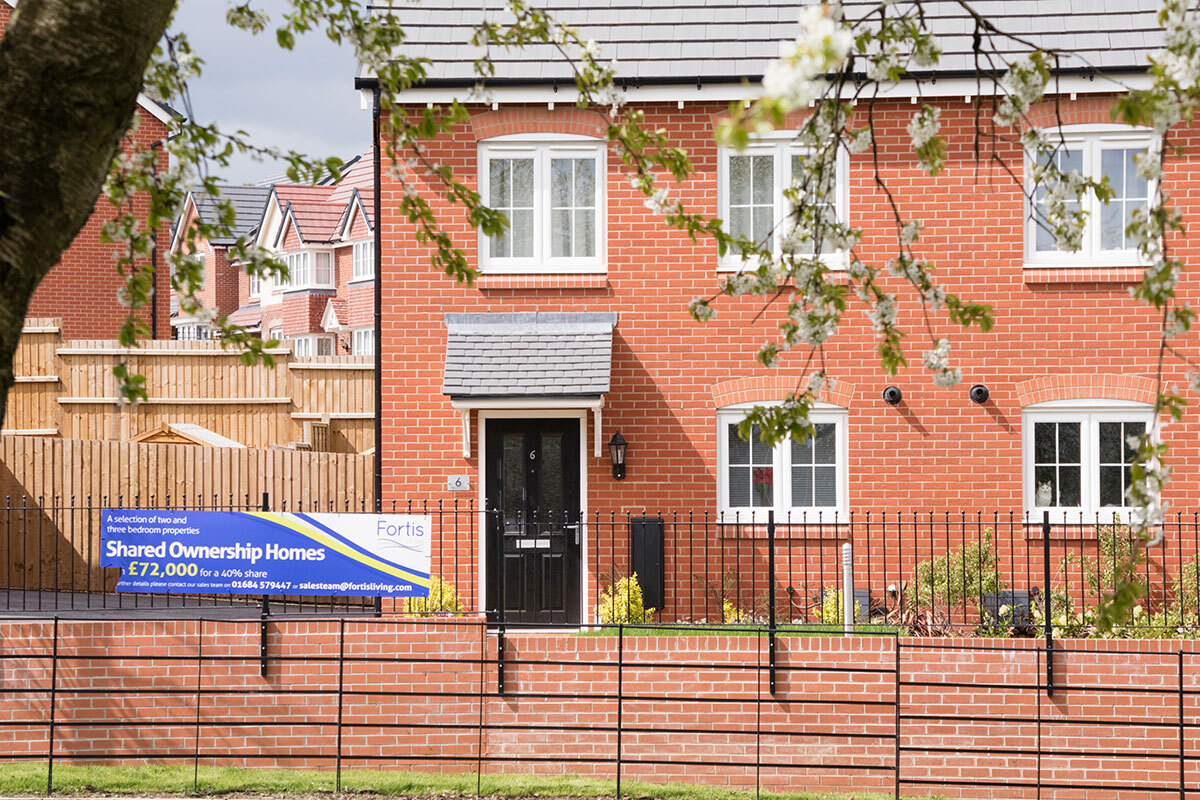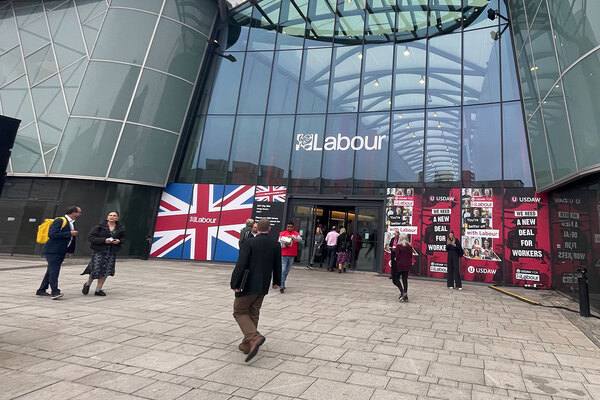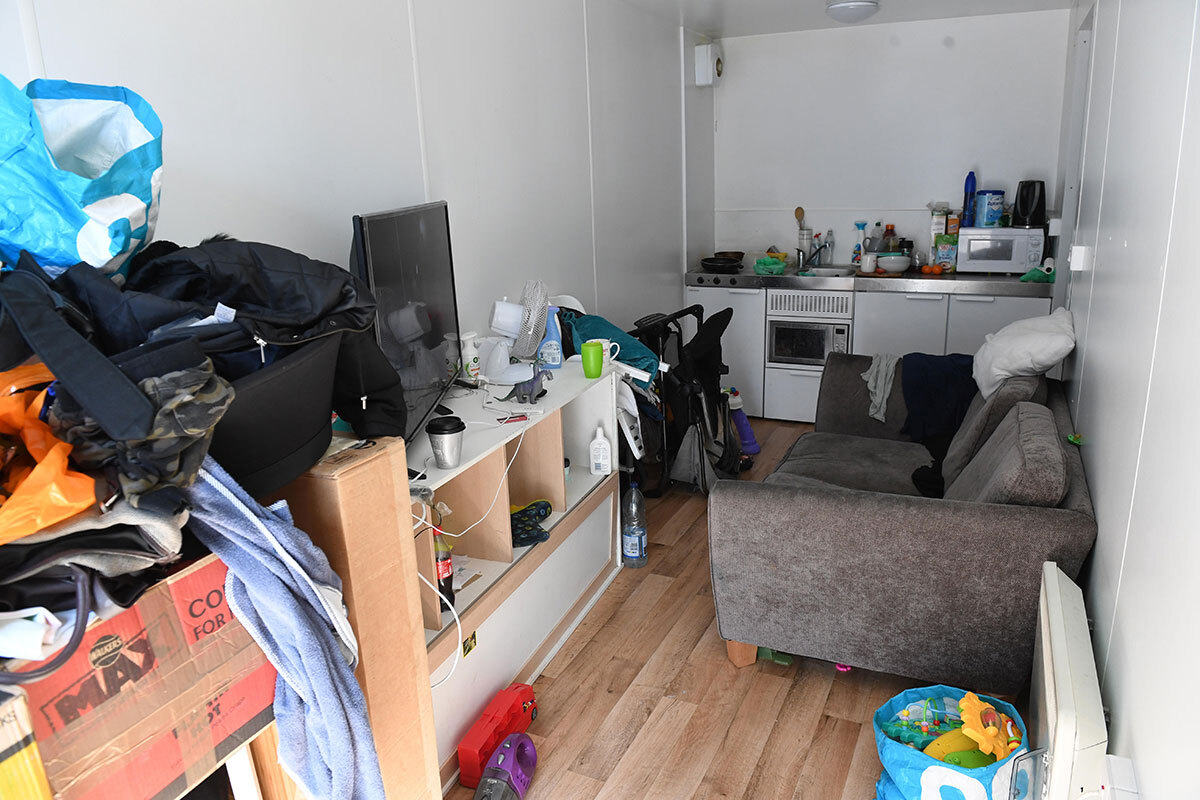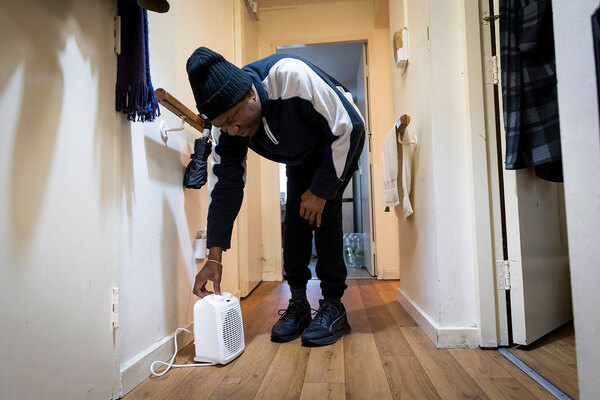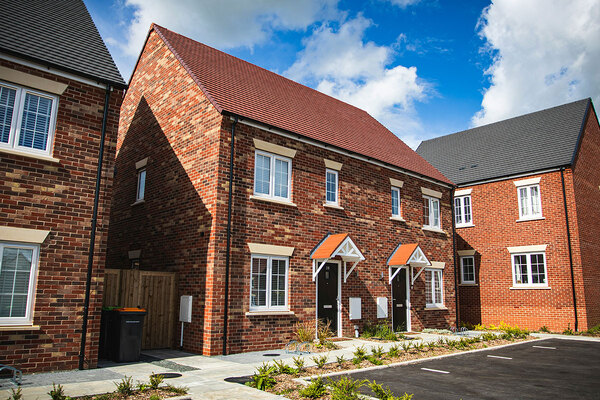You are viewing 1 of your 1 free articles
The Week in Housing: Starmer sparkles but can he take on the nimbys?
The Week in Housing is our weekly newsletter, rounding up the most important headlines for housing professionals. Sign up below to get it direct to your inbox every Friday
Good afternoon.
It’s been a week dominated by how senior figures within the Labour Party understand the housing crisis and what they plan to do about it.
First, the party leader. Sir Keir Starmer has since described the rogue protester who covered him in glitter during his crucial conference speech as an “idiot”, but it was a moment he handled well.
It gave the Labour leader a sparkle as he dusted himself down, his jacket off and sleeves rolled up, before launching into an hour-long speech that pledged to deliver a package of reforms to transform the planning system – and deliver 1.5 million homes over the next parliament.
In a series of broadcast interviews, Sir Keir also declared himself a ‘yimby’. That is despite, as Politico pointed out, having blocked planning proposals himself in the past.
But that was then. Now his ambition is to build four new towns. He admitted that this might involve ignoring planning objections to new builds, and getting “tough” on anyone who stands in his way.
A message for his own MPs as much as anyone else.
Sir Keir’s new-found sparkle has been commemorated by the Labour Party with the release of a limited edition T-shirt that reads “Sparkle with Starmer”.
Personally, I’d prefer “Tough on green belt, tough on the causes of green belt” (it grew in size in 2022-23 for the second year in a row).
Not to be outdone, shadow chancellor Rachel Reeves outlined her plans for taking on the “antiquated planning system” with reforms to accelerate the building of energy, transport and housing infrastructure.
It’s clear that the party also puts some blame on developers for shirking their affordable housing commitments.
Angela Rayner, deputy leader of the party, promised that Labour will deliver the housebuilding boost by preventing developers from “wriggling out of their responsibilities” to help speed up new social and affordable housing.
Capping off our conference coverage for this week, Inside Housing caught the shadow housing conference in a corridor on the second floor of ACC Liverpool.
We spoke to Matthew Pennycook about Build Social, our new campaign calling for the main political parties to commit to building large numbers of homes for social rent – including 90,000 a year in England, or 900,000 over 10 years.
Spoiler alert. He supports the aspiration, and you can read the full interview here.
Assuming Labour wins the next election, the scale of the challenge it faces was laid bare by the government’s latest figures on temporary accommodation.
English councils’ spending on temporary accommodation rose by 9% last year to hit £1.7bn.
Spending on this tenure has risen by 62% in the past five years and a third of last year’s total bill – £565m – was spent on emergency B&Bs and hostels, considered to be the types of temporary accommodation with the poorest standards.
Homelessness is increasing in England. Figures published in July showed that the number of people in temporary accommodation was at a record high.
Dealing with this homelessness crisis is contributing to a £500m shortfall in London councils’ budgets.
A new analysis by the cross-party group London Councils found that boroughs in the capital will need to make over £0.5bn of savings next year to balance their budgets.
And in what would prove to be a worrying trend, one London council revealed that it had defunded a supported housing contract so it can adequately fund the rest of its providers.
Lewisham Council agreed to remove the £250,036 annual funding for Phoenix Futures, which supports homeless people to address substance misuse, and use it to fund other supported housing providers.
In an attempt to find its own solution this week, one large landlord has partnered with Shelter to help prevent affordable evictions.
The homelessness charity and the newly formed Sovereign Network Group have partnered for an initiative that aims to prevent avoidable evictions and support tenants to re-engage with their landlords.
On the regulatory front, the Housing Ombudsman published details of its enhanced new powers, including the ability to order landlords to re-evaluate policy.
The ombudsman is now able to order a landlord to evaluate a particular policy or practice to prevent service failure being repeated.
Meanwhile, the Regulator of Social Housing’s annual whistleblowing report recorded a fall in allegations made about social housing providers in the past year.
Housing secretary Michael Gove stirred from his post-conference slumber to announce that there will be no government funding to go towards the removal of reinforced autoclaved aerated concrete in social housing.
Where found, social landlords must pay for the potentially dangerous concrete to be removed using rental income. This news came after leading ratings agency Standard & Poor’s warned that many of the UK’s social landlords will find it “challenging” to maintain interest cover if inflation and interest rates remain high.
Sticking with inflation, there will be some respite for new shared owners. Annual rent rises for new shared owners are being brought in line with social housing.
The current rule allows shared ownership landlords to increase rents once a year in line with the Retail Price Index (RPI) plus 0.5%.
The RPI figure from the previous September is used, which was 12.6% in 2022, meaning shared owners faced a rise of 13.1% in April if the landlord did not voluntarily cap it at a lower rate.
But the government has announced a move from the “outdated” RPI to a new system based on the Consumer Price Index (CPI) plus 1%.
There was no consultation, and it appears to have taken the sector by surprise. One housing professional has already been in touch to ask: “What is this going to do to capacity and development plans?”
That is a good question.
Have a great weekend.
Stephen Delahunty, deputy news editor, Inside Housing
Say hello: stephen.delahunty@insidehousing.co.uk
Editor’s picks: five stories you may have missed
Welsh government unveils plans for ending homelessness
Grants director at Homes England to retire after 32-year career
Large landlord leaves elderly woman with heart condition in damp and mould for 18 months
Shadow homelessness minister says affordable definition should be linked to income
Sign up for our Week in Housing newsletter
Already have an account? Click here to manage your newsletters

